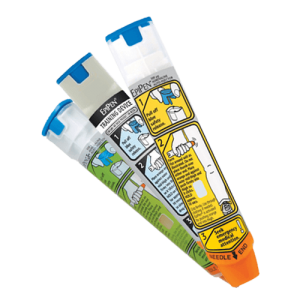We exist to protect – CPA team member saves a life – of a CPA team member.
by Chelsea Ardley
Corporate Protection teams save lives literally on a daily basis. This is such a routine event that we only report exceptional examples.
In the majority of these cases, we would obviously be reporting on a CPA Health & Medical Medic administering care to a client employee or client contractor on site.
The most recent event was highly unusual – the life saver was a CPA team member and the patient was also a CPA team member!
The incident was truly a miracle and a credit to our team and a reminder of the importance of emergency response planning, part of the Corporate Protection culture.
The case involved anaphylactic shock, a life-threatening event requiring specific and immediate response. The case occurred at a CPA Client Site where we provide 24/7 protection.
In September, one of our staff members, became aware that one of our team members was trying to communicate their distress and was struggling to breathe.
Fortunately, the patient was aware of their allergy and had in their possession 2 EpiPen’s, the treatment of choice for anaphylactic shock.
 Just as importantly, the patient had advised their team members of the risks and treatment should such as event occur and the location of their EpiPen’s.
Just as importantly, the patient had advised their team members of the risks and treatment should such as event occur and the location of their EpiPen’s.
In this case the first EpiPen treatment did not reverse the episode, fortunately the patient not only had a second EpiPen but had again notified their colleagues of the contingency.
QAS was contacted and our team member continued to treat the patient, under QAS guidance.
4 minutes after the initial episode, two more CPA team members, found the second EpiPen and assisted, at QAS request, by meeting the ambulance and directing them to the Control Room.
The ambulance arrived and the patient was under QAS care and shortly thereafter he was taken to hospital.
Amazingly, 33 minutes after the initial episode, the patient was able to ring our team from the hospital to say they were stable and to offer their thanks.
CPAHM Medical Director, Dr. Scott Wilkinson reviewed the case and the CPA response. We asked for lessons learned:
- Anaphylaxis can be life threatening if not recognised and aggressively treated
- Quick action was Life saving
- Having a second EpiPen is key
- Shows importance of having EpiPen and communicating with colleagues if you are at risk